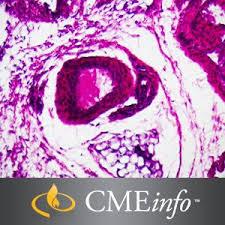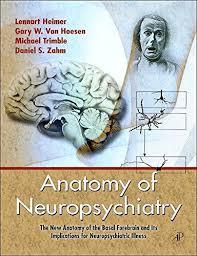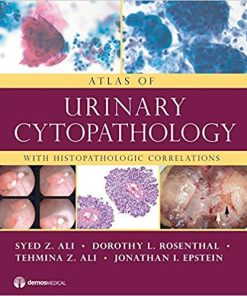Cytopathology – A Comprehensive Review VIDEO + PDF
55 $
Delivery time: Maximum to 1 hours
Cytopathology – A Comprehensive Review VIDEO + PDF
Enhance Your Ability to Evaluate and Report Cytology Specimens
This program of 15 state-of-the-art lectures covers general diagnostic aspects of all areas in gynecologic, non-gynecologic and fine-needle aspiration cytology. It is designed to improve a pathologist’s ability to evaluate and report cytology specimens using consensus diagnostic terms and reporting systems. Lectures describe typical cytology features of normal, benign and neoplastic specimens in each organ system. The program is ideal for practicing and training pathologists and cytopathologists preparing for board exams in pathology and subspecialty board exams in cytopathology. The course will help you to better:
- Describe the common types of cytology specimens and the ways to prepare them.
- Recognize normal elements and benign and reactive processes in each organ system.
- Identify abnormal and neoplastic lesions of each organ system.
- Apply the consensus diagnostic terms to classify non-neoplastic and neoplastic lesions of each organ system.
- Discuss differential diagnoses of each diagnostic entity.
- Apply the most updated knowledge and molecular techniques in daily practice.
Discover New Guidelines
A clinically based review, this learn-at-your-own-pace course in cytopathology provides a maximum of 14 AMA PRA Category 1 Credits ™. Available online, it provides access to unbiased, evidence-based content and case-based reviews so you may expand your knowledge of this critical sub-specialty. This activity meets the American Board of Pathology’s Maintenance of Certification (MOC) requirements for Part II (CME and SAMs) Lifelong Learning and self assessment.
- Cervical and Vaginal Cytology- Squamous Lesions – Fang Fan, MD, PhD
- Cervical and Vaginal Cytology-Glandular Lesions – Fang Fan, MD, PhD
- Urine and Bladder Washings – Katie Dennis, MD
- Body Cavity Fluids and Cerebrospinal Fluid – Katie Dennis, MD
- Gastrointestinal Tract – Fang Fan, MD, PhD
- Breast – Fang Fan, MD, PhD
- Thyroid – Rashna Madan, MBBS
- Salivary Gland – Maura O’Neil, MD
- Respiratory Tract – Fang Fan, MD, PhD
- Lymph Nodes – Fang Fan, MD, PhD
- Liver and Biliary Tract – Maura O’Neil, MD
- Pancreas – Rashna Madan, MD
- Kidney and Adrenal Gland – Fang Fan, MD, PhD
- Bone and Soft Tissue – Marilyn M. Bui, MD, PhD
- Cytopathology Laboratory Management – Fang Fan, MD, PhD
Accreditation Statement
Oakstone Publishing, LLC is accredited by the Accreditation Council for Continuing Medical Education to provide continuing medical education for physicians.
Designation
Oakstone Publishing, LLC designates this enduring material for a maximum of 14 AMA PRA Category 1 Credits ™. Physicians should claim only the credit commensurate with the extent of their participation in the activity.
Date of Original Release: October 1, 2015
Date Credits Expire: October 1, 2018
Estimated Time to Complete: 14 hoursCME credit is awarded upon successful completion of a course evaluation and post-test.
This activity meets the American Board of Pathology’s Maintenance of Certification (MOC) requirements for Part II (CME and SAMs) Lifelong Learning and self assessment.
Learning Objectives
At the conclusion of this course, the participant will be able to do the following:
- Describe the common types of cytology specimens and the ways to prepare them.
- Recognize normal elements and benign and reactive processes in each organ system.
- Identify abnormal and neoplastic lesions of each organ system.
- Apply the consensus diagnostic terms to classify non-neoplastic and neoplastic lesions of each organ system.
- Discuss differential diagnoses of each diagnostic entity.
- Apply the most updated knowledge and molecular techniques in daily practice.
Intended Audience
- Cytopathology fellows
- Pathology residents
- Practicing pathologists preparing for initial certification and re-certification in anatomic pathology boards and cytopathology subspecialty boards












